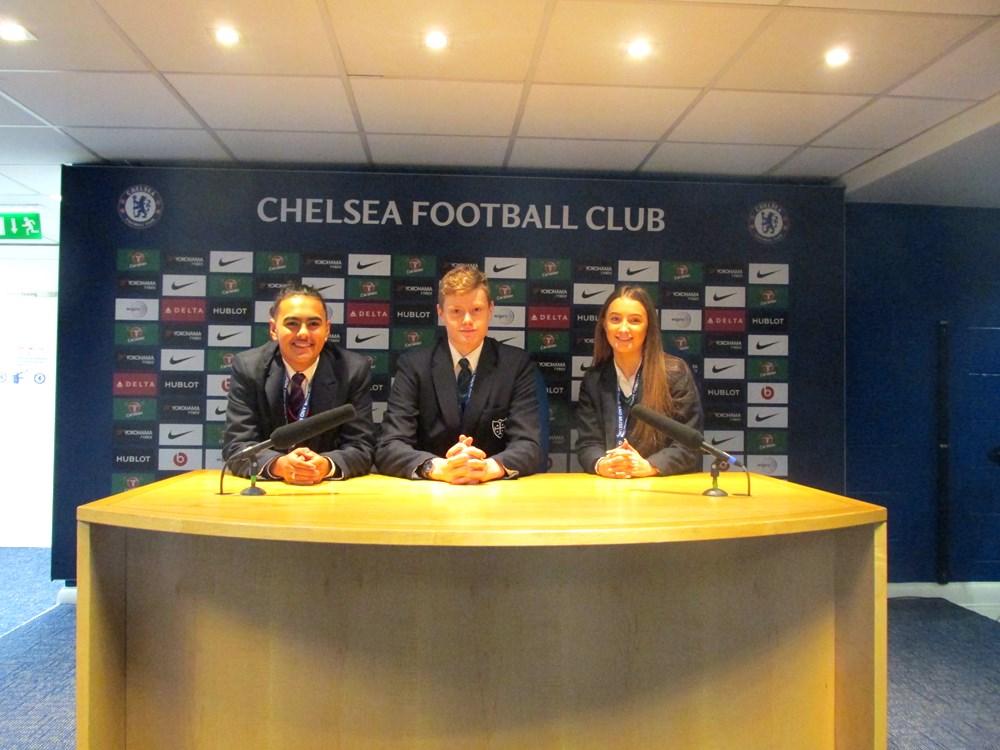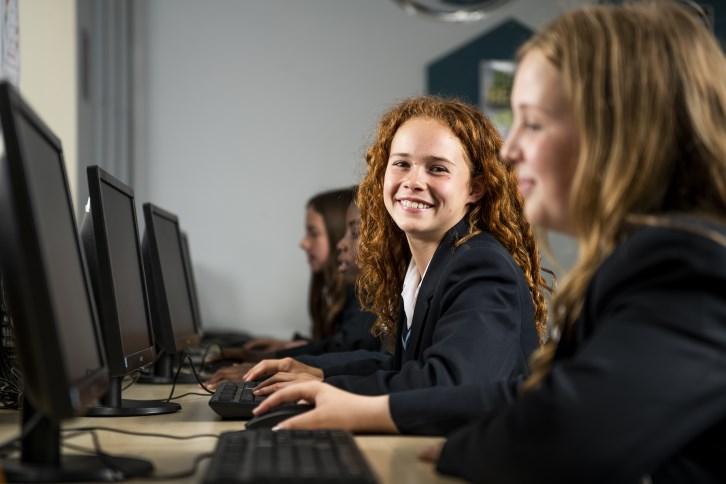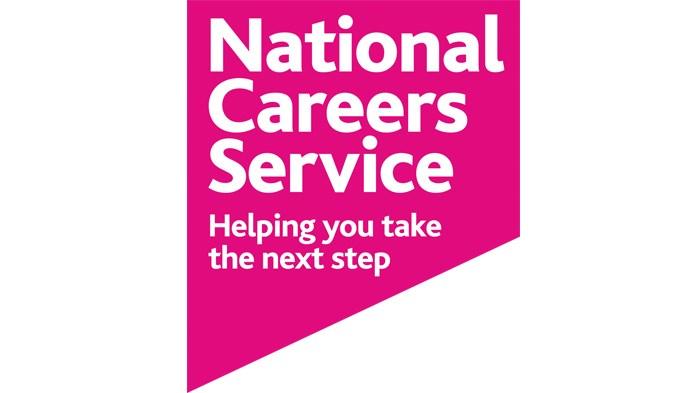
5 minute read
GCSE Business Studies
OPTION
GCSE Business Studies
Business Studies is about the real world. For this reason, students will experience the real world, studying real businesses as part of the course and all Year 10 Business Studies students will be given the opportunity to take part in an organised trip to see a business in action (currently Chelsea Football Club). In lessons, they will be involved in individual, paired and group work, often being asked to suggest solutions to business problems. They will also be set projects that require them to apply the type of skills that make them “stand out from the crowd”. For example, they will work in a team on a “Dragons’ Den” style project, inspired by the hit TV programme and Levi Roots’ visit to the School.
Information Technology (IT) forms an integral part of the course and students will regularly use the Business Centre’s IT facilities to extend their studies beyond the four walls of the classroom.
Students cover all aspects of starting a new business, and growing as a business. This includes such topics as: Aims and Objectives of Business, Production, Marketing, Human Resources, Operations Management and Location.
The course is made up of two units. In both units students will take a written examination paper which consists of calculations, multiple-choice, short-answer and extended-writing questions By the end of the two-year course, students will not only have gained a much deeper understanding of the business world, but will also have developed the employability skills much sought after by industry today. Edexcel GCSE Business
ASSESSMENT FORMAT
POSSIBLE CAREERS AND FURTHER INFORMATION
FURTHER INFORMATION
Assessment is based on two examination papers (each accounting for 50% of the final mark) which consist of calculations, multiple-choice, short-answer and extendedwriting questions.
Employers of the future are going to want employees who can make a difference. They will of course be interested in qualifications; however, perhaps more importantly, they are going to want employees who are equipped with the skills, knowledge and understanding to get the job done, i.e. employability skills!
This course is also ideal preparation for advanced level study in a range of courses, particularly A Level Economics and A Level Business. It is an excellent base for any career or for potential entrepreneurs!
WEBSITE
http://qualifications.pearson.com/en/qualifications/edexcel-gcses/business2017.html Mr Mills
ASSESSMENT FORMAT
POSSIBLE CAREERS AND FURTHER INFORMATION
FURTHER INFORMATION
Level 1/2 Cambridge National Certificate in Enterprise and Marketing
Two internally-assessed, externally moderated, assignments - each worth 30% of total marks.

Employers of the future are going to want employees who can make a difference. They will of course be interested in qualifications, however, perhaps more importantly, they are going to want employees who are equipped with the skills, knowledge and understanding to get the job done, i.e. employability skills!
This course is also ideal preparation for advanced level study in a range of courses, particularly A Level Business Studies and BTEC Level 3 Business.
It is an excellent base for any career or for potential entrepreneurs!
OPTION
This course is for students who wish to develop applied knowledge and practical skills in enterprise and marketing. It is designed with both practical and theoretical elements, which will prepare students for further study of qualifications in enterprise, marketing or business. All learners will study three mandatory topics as follows: Enterprise and marketing concepts: Students will develop essential knowledge and understanding of enterprise and marketing concepts, which can be applied to the other units within the qualification. They will understand the main activities that will need to happen to support a start-up business, and what the key factors are to consider when starting up a business. Design a business proposal: Students will develop the skills to design a business proposal to meet a specific business challenge. They will identify a customer profile for a specific product, complete market research to generate product design ideas, and use financial calculations to propose a pricing strategy and determine the viability of their product proposal. Market and pitch a business proposal: Students will develop the skills to create a brand identity and promotional plan for their specific business product proposal developed in the second topic. They will pitch their business proposal to an external audience. Finally, they will review their pitching skills and business proposal using their learning, self-assessment and feedback gathered. This vocational course can be studied alongside GCSEs (except for GCSE Business).
https://www.ocr.org.uk/qualifications/cambridge-nationals/enterprise-andmarketing-level-1-and-2-certificate-j819/specification-at-a-glance/
Mr Mills WEBSITE

OPTION
GCSE Computer Science
This three-unit course covers both computing theory and programming skills. It is designed to give students an in-depth understanding of how computer technology works and a look at what goes on ‘behind the scenes’. The course builds on computing skills developed in Key Stage 3; it will include logic skills and problem-solving ability will be essential for this course. Programming projects will focus on using text-based languages such as Python. The computer systems and programming unit will cover the theory around a wide range of issues such as the CPU hardware and the Von Neumann architecture, data representation and units of data storage, networks and computer systems security and vulnerabilities, operating systems and systems software, computational thinking, python programming to include data types, variables, iteration and arrays (lists) and boolean logic. Computer Science is engaging and practical, encouraging creativity and problem solving. Students analyse problems, devise creative solutions by designing, writing, testing and evaluating programs. This course is designed to give an in-depth understanding of how computer technology works and a look at what goes on ‘behind the scenes’. Assessment is based on written exams (Component 1- 50%; Component 2 - 50%) as well as a programming project to develop their practical ability in the skills developed in components 1 and 2. As this is a demanding academic course, please note that we may ask students who wish to take GCSE Computing to take an aptitude test and a minimum of grade 6 fin GCSE Maths and GCSE English is required. ASSESSMENT FORMAT
POSSIBLE CAREERS AND FURTHER INFORMATION
FURTHER INFORMATION
OCR GCSE Computer Science
Assessment is based on two written exams.
Paper 1 Computer Systems (1hr 30mins) - worth 50% of total marks
Paper 2 Computational Thinking, Algorithms and Programming (1hr 30mins) - worth 50% of total marks
Most jobs now involve the use of computers and so computer science will provide many skills and opportunities for future career and higher education options.
Just some of the jobs available in computer science include Cyber Security, Information Systems, Forensic Computing, IT Consultancy, Analytics, Engineering, Graphic and Web designers and Business Analyst. However, the list is endless!
WEBSITE
https://www.ocr.org.uk/qualifications/gcse/computer-science-j277-from-2020/ Ms Papa








